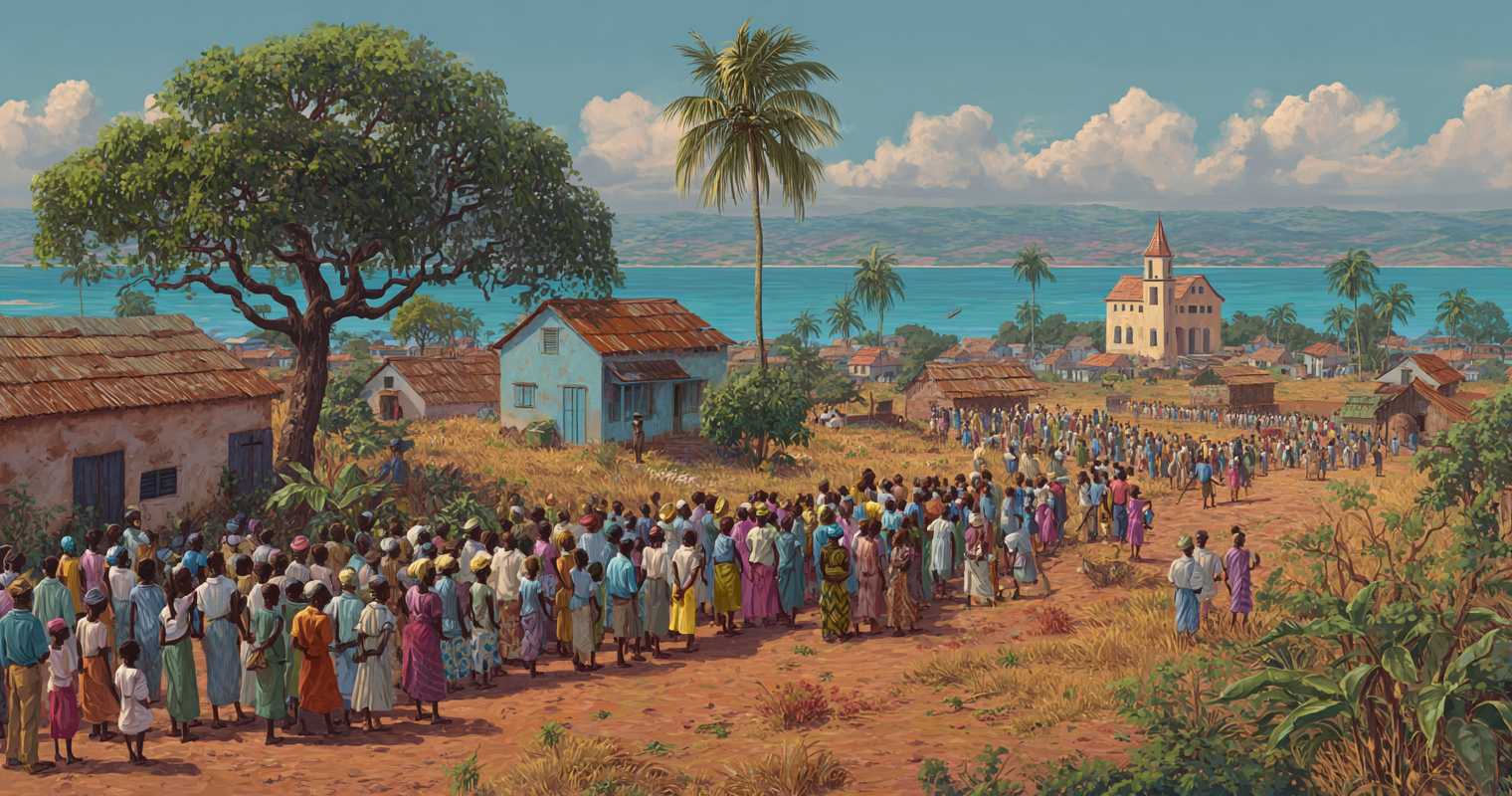
The Sierra Leonean History Quiz takes you on a journey through a country whose story is both turbulent and inspiring. Sierra Leone’s history begins long before colonial borders were drawn, with powerful indigenous kingdoms like the Temne and Mende shaping its early identity. These societies thrived on trade, craftsmanship, and complex social structures that laid the groundwork for the nation’s cultural richness. When European powers arrived, Sierra Leone became a focal point for the transatlantic slave trade, and later, a beacon of freedom as freed slaves returned to settle in Freetown. These contrasting forces created a society built on resilience, adaptation, and determination. Understanding this history reveals not just events, but the enduring spirit of its people who have rebuilt time and again despite immense challenges.
The Sierra Leonean History Quiz also shines a light on how global connections have shaped this small West African nation. Freetown, one of the oldest settlements for freed slaves, became a unique hub of cultural exchange where African traditions mixed with European governance and education. This blend produced a society that valued learning, enterprise, and community leadership. The Krio people, descendants of freed slaves, brought with them customs and perspectives that profoundly influenced Sierra Leone’s language, religion, and legal systems. Over time, this mixture of traditions produced a vibrant culture rooted in both local heritage and global influence. Each chapter of Sierra Leone’s past demonstrates how diversity has been a source of strength, even in the face of political and economic upheaval.
Today, Sierra Leone’s history is visible everywhere, from the colonial architecture of Freetown to the rhythms of traditional music played in rural villages. Festivals celebrate both indigenous traditions and the shared memory of liberation, while oral storytelling remains central to how history is passed down. These living traditions remind us that history here is not confined to books—it thrives in the voices, dances, and ceremonies of its people. The nation’s story has been shaped by adversity, but it has also been defined by creativity and resilience that continue to inspire future generations.
Colonial Encounters and Their Legacy
The Sierra Leonean History Quiz explores how colonialism left a lasting imprint on the nation. British rule established Freetown as a Crown Colony in 1808, and this became a key administrative hub in West Africa. Missionary schools introduced Western education, while British legal systems redefined governance. Yet despite this influence, Sierra Leoneans preserved their languages, traditions, and cultural practices, resisting total assimilation. This balance between adaptation and resistance became a defining trait of Sierra Leonean identity.
These colonial foundations would later serve as both a challenge and an opportunity. While the introduction of infrastructure and formal education opened new pathways, the dominance of colonial rule also created inequalities. The post-independence era would be defined by efforts to overcome these divides and reclaim cultural and political autonomy.
The Road to Independence
The Sierra Leonean History Quiz traces the nation’s journey to independence, which was formally achieved in 1961. Nationalist movements grew throughout the mid-20th century, driven by educated elites and local leaders who demanded self-governance. Political organizations like the Sierra Leone People’s Party (SLPP) became central in uniting the population behind the cause of freedom. These leaders drew on both traditional authority and modern political ideas to chart a new course. Independence was not just a political milestone—it symbolized the determination of a people to shape their own future.
However, independence also brought challenges. Sierra Leone faced the task of building a stable state while balancing the interests of its many ethnic groups. The process was not always smooth, but it laid the groundwork for a sense of shared national identity rooted in the sacrifices and dreams of its citizens.
Conflict and Rebuilding
The Sierra Leonean History Quiz also examines one of the nation’s darkest periods: the civil war of the 1990s. Fueled by political instability and the illegal diamond trade, the conflict devastated the country and displaced countless families. Yet even in this bleak chapter, the resilience of Sierra Leone’s people stood out. Communities organized to protect one another, and international efforts eventually brought an end to the violence.
The post-war period became a story of reconstruction and renewal. Sierra Leoneans rebuilt schools, markets, and homes, and worked to heal deep social wounds. Today, the country’s recovery demonstrates how even the harshest historical moments can give rise to extraordinary perseverance and unity.
9 Fun Facts About Sierra Leonean History
- Sierra Leone is home to one of the world’s oldest universities in West Africa: Fourah Bay College, established in 1827.
- The Krio language, widely spoken in Sierra Leone, developed from English and various African languages.
- Sierra Leone played a significant role in British naval efforts to suppress the transatlantic slave trade.
- The country’s coastline has some of the most historically significant ports in West Africa.
- Many of Sierra Leone’s historic buildings in Freetown reflect a blend of Caribbean and European architectural styles.
5 Serious Facts About Sierra Leonean History
- The discovery and regulation of diamond resources remain central to the nation’s economy and political history.
- Sierra Leone officially gained independence from Britain on April 27, 1961.
- The civil war from 1991 to 2002 resulted in over 50,000 deaths and extensive displacement.
- The Special Court for Sierra Leone prosecuted key figures responsible for war crimes, setting a precedent in international justice.
Sierra Leonean History – FAQ
Sierra Leonean history has profoundly impacted the country’s current socio-political landscape by laying the foundation for its governance structures, societal norms, and cultural practices.
Several key events have left a lasting impact on Sierra Leonean history, including the abolition of the transatlantic slave trade, the establishment of the Protectorate system, the attainment of independence in 1961, and the brutal civil war that ravaged the country in the 1990s. These events have shaped the collective memory and identity of the Sierra Leonean people.
